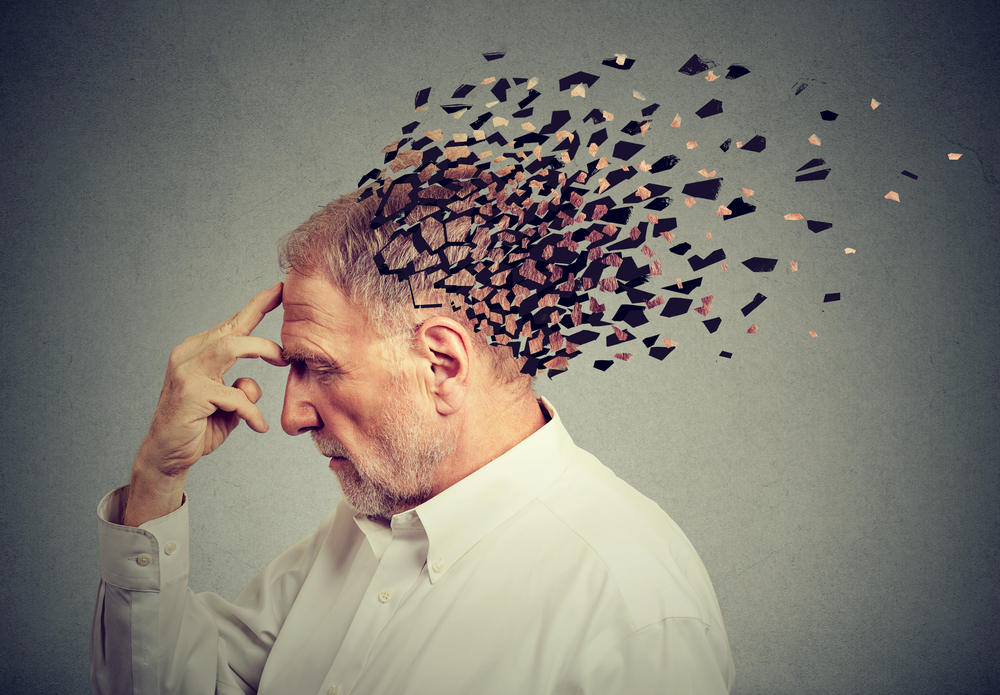There is no known cure for Alzheimer’s disease, and there are few medications which aid in rectifying it and researchers are learning more about ways to prevent this condition.
More women are diagnosed with Alzheimer’s disease than men. However, Alzheimer’s disease is something that men need to be very cautious of because it can cause severe damages to their body.
It damages the ability of a person to think and reason clearly, and it would eventually result in the inability of performing simple tasks.
Alzheimer’s disease is the most common reason for the development of dementia in men, depriving them of their cognitive thinking, making it difficult for them to think right and remember things.
Symptoms of Alzheimer’s Disease
Alzheimer’s disease mainly affects the cognition (thinking and memory) by restricting the communication points between the brain cells, also known as synapses. As the synapses begin to fail, the brain cells start to die off.
The interference occurs as a result of tangled bundles and abnormal clumps that jam the signals located in between the brain cells. The signs of Alzheimer’s disease vary in persons depending on the stage the person is found in.
There are three stages of Alzheimer’s disease; these stages include:
- Stage 1: Mild Alzheimer’s disease
- Stage 2: Moderate Alzheimer’s
- Stage 3: Severe Alzheimer’s disease
Stage 1: Mild Alzheimer’s disease
Earlier on, some individuals who have Alzheimer’s disease notice symptoms like mood swings and memory loss. They have a lessened amount of energy and find it difficult to react and learn quickly. They get confused easily and have problems with performing simple, everyday activities.
People who have the early and minor stage of Alzheimer’s disease may often:
 Become lost
Become lost- Repeat stories and questions within the same conversation
- Exercise poor reasoning and judgment
- Become angry, frustrated, depressed or withdrawn.
- Lose items or place them in weird locations (for example, putting car keys in the refrigerator).
- Have problems paying bills and mismanaging money.
This stage of Alzheimer’s disease is known to last for two to four years.
Stage 2: Moderate Alzheimer’s disease
At this stage, a person with this level of Alzheimer’s disease might still be able to perform regular and average activities but might need help with more complicated ones.
They begin to experience both short-term and long-term memory loss and become more disoriented and disconnected from the world and reality. They tend to confuse the past and present and might even have issues with recognizing their family and friends.
This stage of Alzheimer’s disease usually lasts for two to ten years.
Stage 3: Severe Alzheimer’s disease
This is the highest and cruelest stage of Alzheimer’s disease, and it can last for up to three years.
During this stage, people with Alzheimer’s disease lose the ability to feed themselves, speak, control their bodily functions or even recognize people, including their friends and family.
At this stage, they have nearly lost their memory and need constant care and attention.
Alzheimer’s Disease: Diagnosis and Treatment
To diagnose that a person has Alzheimer’s disease, the doctor will first obtain a medical history and get access to a person’s overall health.
The doctor would also inquire about a person’s ability to carry out their daily activities and if there is any change in their personality or behavior.
The doctor proceeds to:
- Engage the patient through varieties of test his level of reasoning, judgement, attention, problem-solving skills and language.
- Carry out urine, blood or spinal fluid test to cancel out other possible causes of the occurring symptoms.
- Order imaging studies to be carried out on the brain, with the use of MRI testing or CT scans.
While there is no known cure for Alzheimer’s disease, there are certain medications which aid in slowing down the symptoms of moderate or mild Alzheimer’s disease in some men.
However, you should seek advice from a team of doctors, nurses, social workers and others who might help in simulating your mind and keeping you at ease.
Alzheimer’s Disease: Prevention
Man researchers embarked on the journey to search for a possible cure for Alzheimer’s disease. However, recent studies have shown that there is no known cure for this disease, but there are methods of preventing it.
Buckle up
If you hit your head in a car accident or during a fall, it could result in increasing your chances of having Alzheimer’s disease sooner or later. You must take safety precautions to avoid any hit or blow to your head.
Check your weight
If you are overweight or obese, it can increase your chances of having Alzheimer’s disease. Research has shown that being obese can disrupt your brain in a way that heightens your chances of having Alzheimer’s disease.
Manage your numbers
It is essential that you watch our blood pressure, cholesterol level and blood sugar to figure out when they become too high or too low. Studies have shown that Alzheimer’s disease and high blood pressure, cholesterol level and blood sugar are closely linked or associated.
Challenge your mind
Individuals, who are continually learning and keeping their brains active, tend to have lower chances of getting Alzheimer’s disease. It is not clear, but engaging your mind in mental activities is like a workout for your brain.
Maintain your weight
Ensure that your weight is in a reasonable and healthy range at all times. Eat a healthy diet that is suitable for the proper functioning of your heart like vegetables and fruits, whole grains, low-fat dairy and lean protein.
Limit your intake of saturated fat; it can be found in full-fat dairy products and meats, added sugar, sodium, carbs and alcohol.
Exercise
Exercise aids in slowing down the further development of symptoms in people with Alzheimer disease and preventing the disease in people who do not have it. Studies have shown that exercises should be done for a minimum of thirty minutes every three to four days.
Eat a Mediterranean diet
Research has shown this method to be superb in thwarting or slowing down the development of Alzheimer’s disease in individuals.
Researchers advise that it is better to partially adhere to this diet than to ignore it entirely because switching over to a new diet plan is difficult for most men.
Get enough sleep
Improved sleep has been shown to improve your overall health and prevent the development of Alzheimer’s disease in your body. Studies show that to get a moderate amount of sleep, you ought to sleep for a minimum of seven to eight hours.
Early Signs of Alzheimer’s Disease
There are specific signs which can be an indication that you have Alzheimer’s disease; these signs or symptoms include:
Memory loss that disrupts your daily activities
 One of the most common symptoms of Alzheimer disease is the loss of memory and ability to remember events and activities. You could begin to forget your friends and family, important dates and events and even repeating questions and stories.
One of the most common symptoms of Alzheimer disease is the loss of memory and ability to remember events and activities. You could begin to forget your friends and family, important dates and events and even repeating questions and stories.
Challenges in planning or solving problems
Some people with Alzheimer’s disease or dementia develop the inability to prepare a proper event or work with numbers. They even encounter problems with paying their bills or following a particular family recipe.
They usually take longer time in performing tasks that they could previously do with ease before.
Difficulties completing regular tasks
Individuals who have Alzheimer’s disease usually have problems with completing their daily or everyday tasks like driving to a familiar location, organizing a grocery list or even remembering how to play your favorite game.
Confusion with place and time
People who have Alzheimer’s disease tend to lose track of dates, seasons, and the passage of time. They usually experience difficulties with comprehending situations if it is not happening immediately. They even tend to forget where they are or even how they got there.
Trouble understanding visual images and spatial relationships
For most individuals, developing problems with their visuals is as a result of Alzheimer’s disease, it eventually leads to difficulty in reading and with balance. They also have issues with determining contrast or color, judging distance and driving.
Problems with words in writing or speaking
People who have Alzheimer’s disease may have difficulties in following or joining a conversation. They might pause in the middle of a conversation and be perplexed on how to continue, and they might end up repeating themselves in the conversation.
They tend to have difficulties with their vocabulary and pronunciation of some words.
Misplacing things and the inability to retrace steps
People with Alzheimer’s disease are liable to misplace items frequently and lose the memory of where they kept it. He or she tends to accuse others of stealing if the case worsens. They might be unable to retrace their steps to figure out an issue.
Conclusion
Alzheimer’s disease in men is an infrequent occurrence, but when it occurs, it needs immediate attention. Alzheimer’s disease comes with memory loss, lack of logical thinking and judgment, and lack of remembrance.
Alzheimer’s is known as a disease which directly affects the brain and causes a decline in the reasoning, memory retention and thinking of a man.
It can be prevented and lessened in various ways but does not have an absolute cure. Methods of prevention include living a healthy lifestyle, getting enough sleep and quitting bad habits like smoking.








COMMENTS